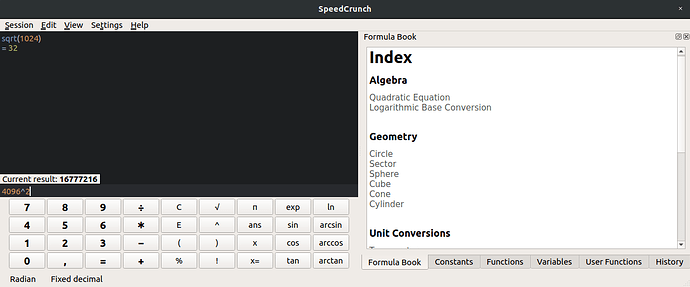I frankly don’t understand where OP is coming from.
I do understand wanting an affordable phone that can run every app you want and already use, that supports all the latest technologies. We already have those in iOS and Android ecosystems. So 99.99% of people can just do that. They’re free to choose, just like anyone else.
I haven’t seen anyone yet claim that a Librem 5 is going to compete with a flagship device from other companies. Or that a reason to buy one is for superior performance and specs. Everything I have read is quite realistic and you’re free to read any of the preliminary specs for yourself. When the phone is shipped, you will presumably be able to read the full specs and reviews for yourself.
I don’t understand comparing a small newcomer like Purism with decades-old established giants in the market. Neither from a price perspective nor a features perspective. The giants can make deals and take losses in ways you just can’t expect from a small company where every dollar goes to keep the lights on, feed the employees, and develop the products.
I understand that the smartphone market is extremely competitive and constantly trying to outdo one another with the latest greatest bells and whistles. Meanwhile it’s a race to the bottom on the low end. Yes, my cheap 2-year-old Samsung will outperform any open source phone out there and it’s not even close. Perhaps in that context and with those expectations, the Librem 5 will seem like a disappointment to many.
Here’s the thing. I feel like supporting this project and this company ultimately comes down to supporting an idea. The idea that we should know how our devices work and what is running on them, and be able to change any of it, freely, without waiting for someone else to “hack” into them for us (in fact my cheap Samsung still has NO root available, so it’s impossible to install a different OS, even if I wanted)
Similar to the Raspberry Pi. Buying one of those isn’t getting the cheapest or fastest possible hardware. It’s supporting the foundation and the ideas they represent. Lowcost or free computers for everyone built around open software. Sure there are hundreds of cheap Asian clones with higher specs and no ideals whatsoever. And once again you are free to choose them over an RPi if you similarly have no ideals.
It’s not even about supporting Purism the company, they are only a vehicle for an idea. Just like GNU and FSF are only a vehicle for the idea of FOSS. If I don’t agree with everything Richard Stallman says, that doesn’t mean I boycott GNU, there is far too much to benefit from there. The company might even fail, but the idea can live on, it only needs people to support it. So you can choose to support an imperfect vehicle for a noble idea, or gloat over every imperfection you find.
Simple as that. It moves us one step closer to the vision of fully liberated hardware and software. We can never get there if we simply give up before trying, and that’s what a few people seem to be missing.
On the other hand, what are you really supporting if you buy Android or iPhone devices? In some abstract sense you could argue that you’re supporting their platform, both the hardware and software, that you trust it and it works well for you. But realistically they aren’t going to make decisions in response to what you or I think. It’s only going to come down to profit and their arbitrary visions for the product.
When Google dictates Android will do XYZ, then that is how it will be, and you truly have zero choice in the matter, except to not use Android or not upgrade. When Apple dictates iOS will do XYZ, then that is what happens, and you have no choice in the matter, except to not use iOS or not upgrade. You can’t just patch it and revert a change, or fix something that annoys you, or experiment with something new, because it’s all locked down. You do as your told and get what you’re given, and they expect you to be happy about it.
I haven’t even mentioned privacy concerns.
Some have pointed out that there may still be proprietary firmware in the Librem 5. This is true, but it’s also true that most GNU/Linux devices also rely on proprietary firmware. Yet this is not an argument anyone uses against Linux in favor of Windows or Macos. Because you are comparing apples and oranges: mostly closed OSes vs almost entirely open OSes.
Why is a phone different?
As far as I know, there is no modern open source baseband in existence. So we’re fundamentally blocked there. If anyone knows an example, please provide a link, and then we can discuss why the Librem 5 doesn’t use it, and critique Purism on that front. Otherwise I don’t see this is a valid criticism. They are no more closed than anyone else in one aspect, and more open in the remaining aspects. This should be celebrated as a triumph.
I fully realize that I am essentially paying a premium if I buy a first edition Librem 5, that there is no guarantee that it will ever run Android apps, that it doesn’t have the latest features, and that it won’t perform as well as cheaper phones. But I love the feeling of having control over my devices. To the greatest extent possible.
Maybe it will only ever be a niche product and closed platforms will continue to dominate in the future. That doesn’t prevent me from using my phone, finding ways to make it work, and showing it to others, so they can see that, wow there are alternatives out there to the big tech companies and proprietary devices!

